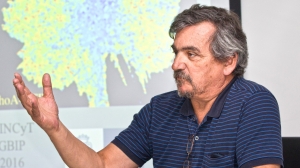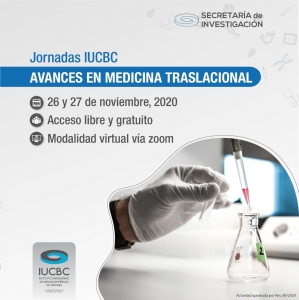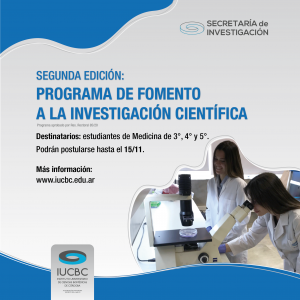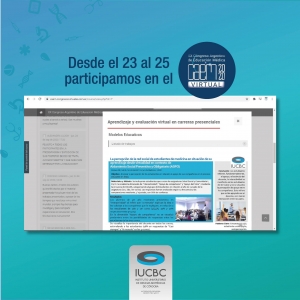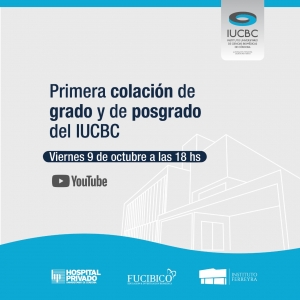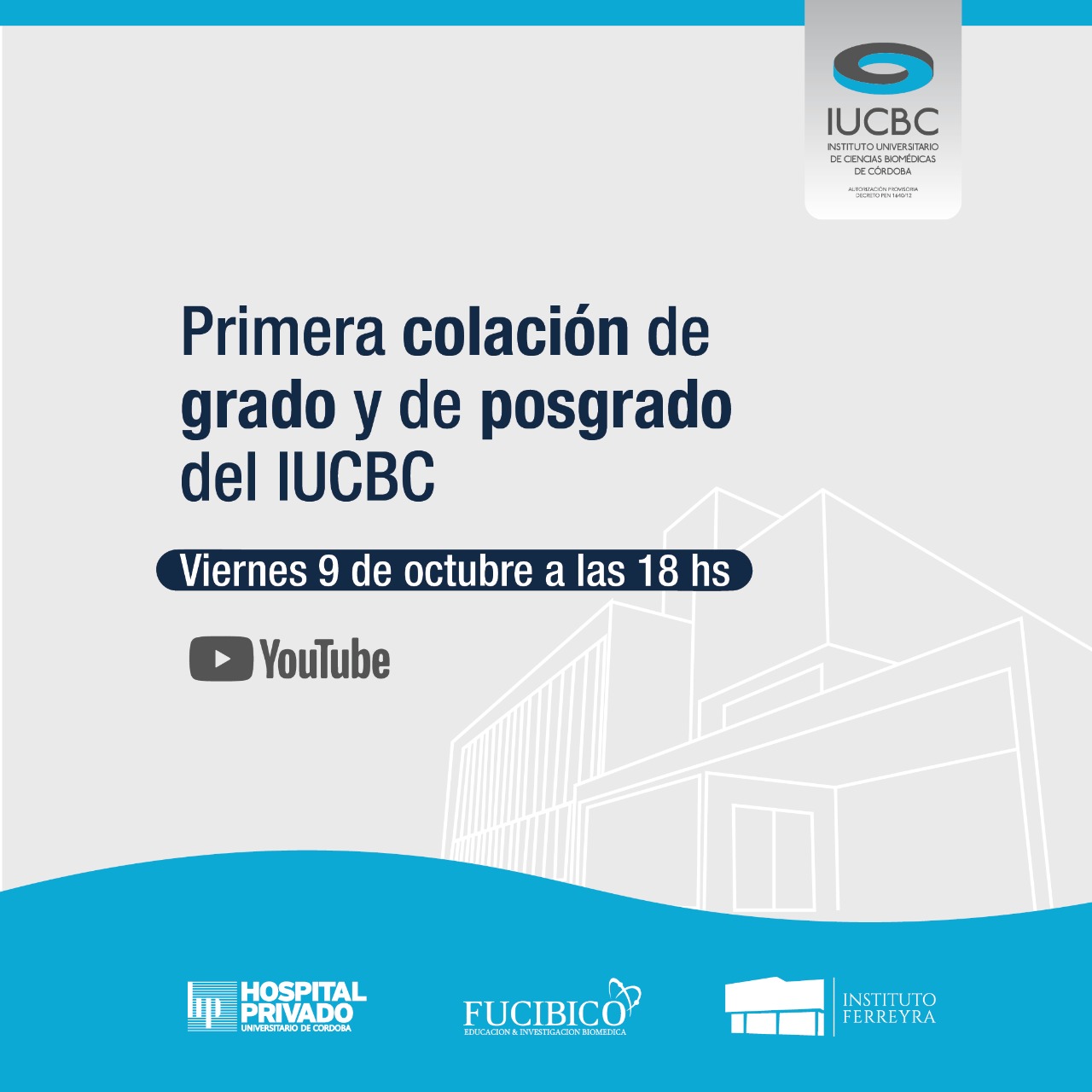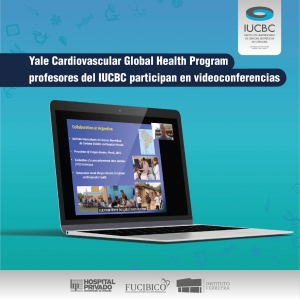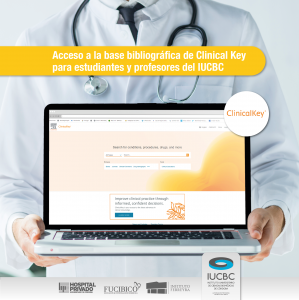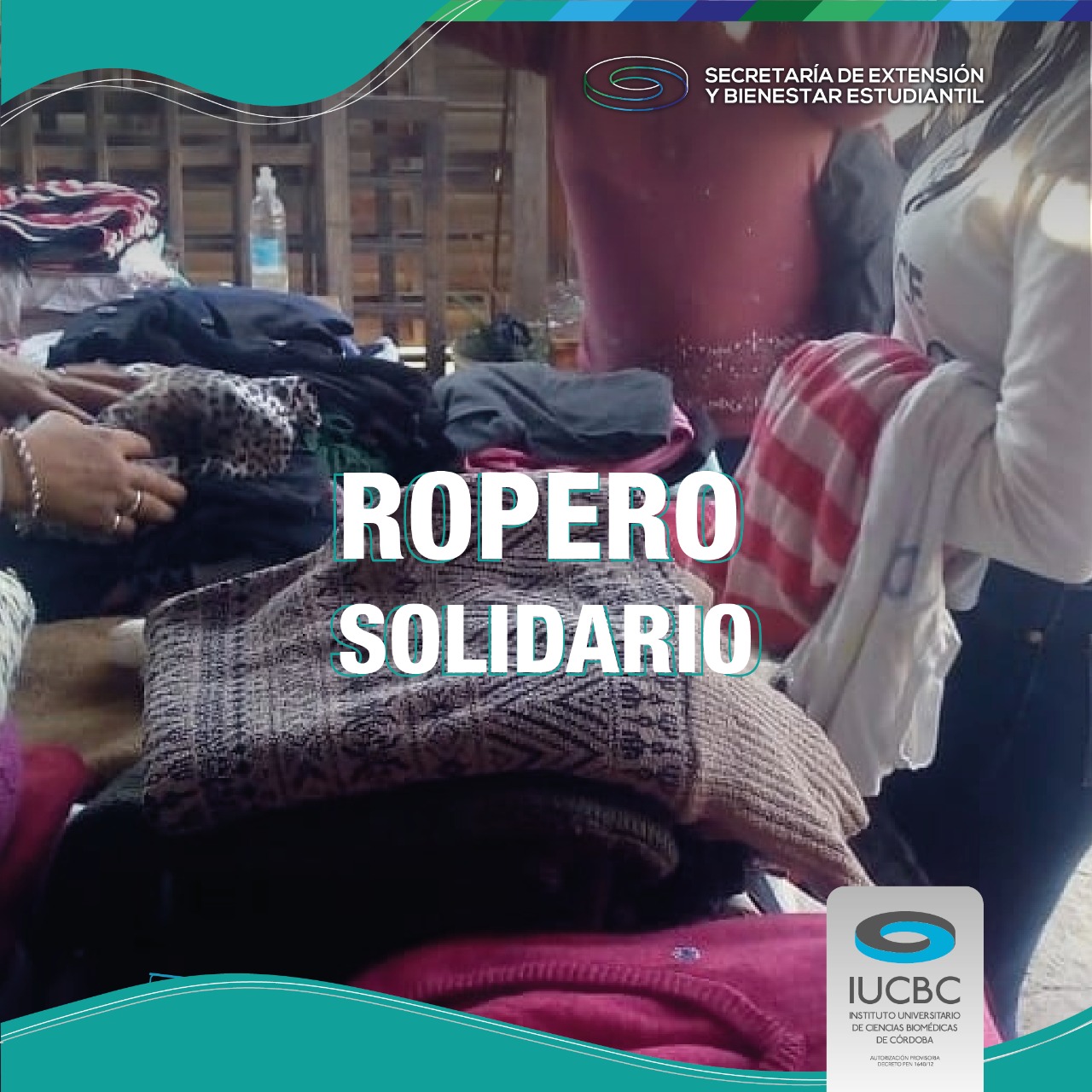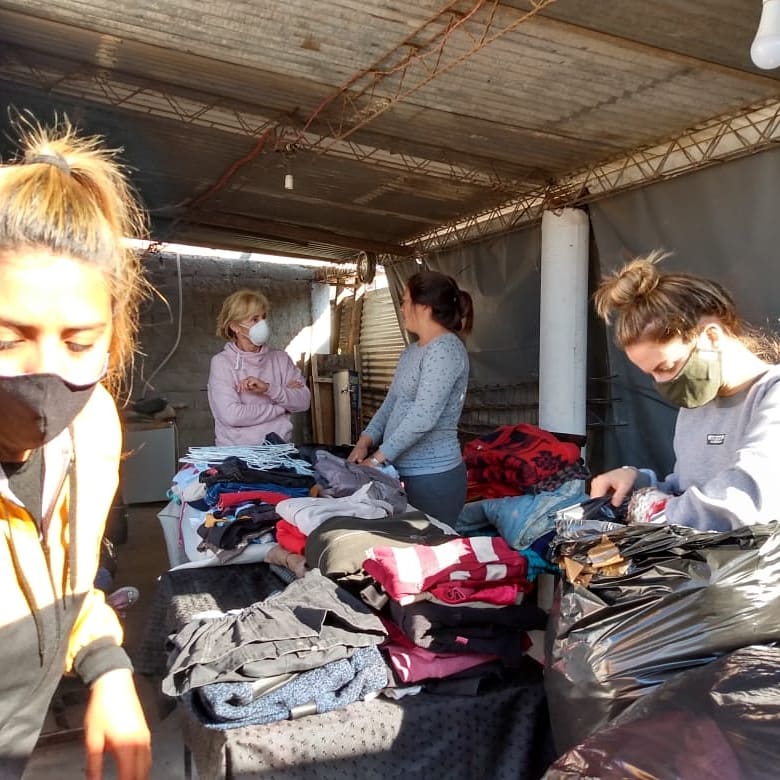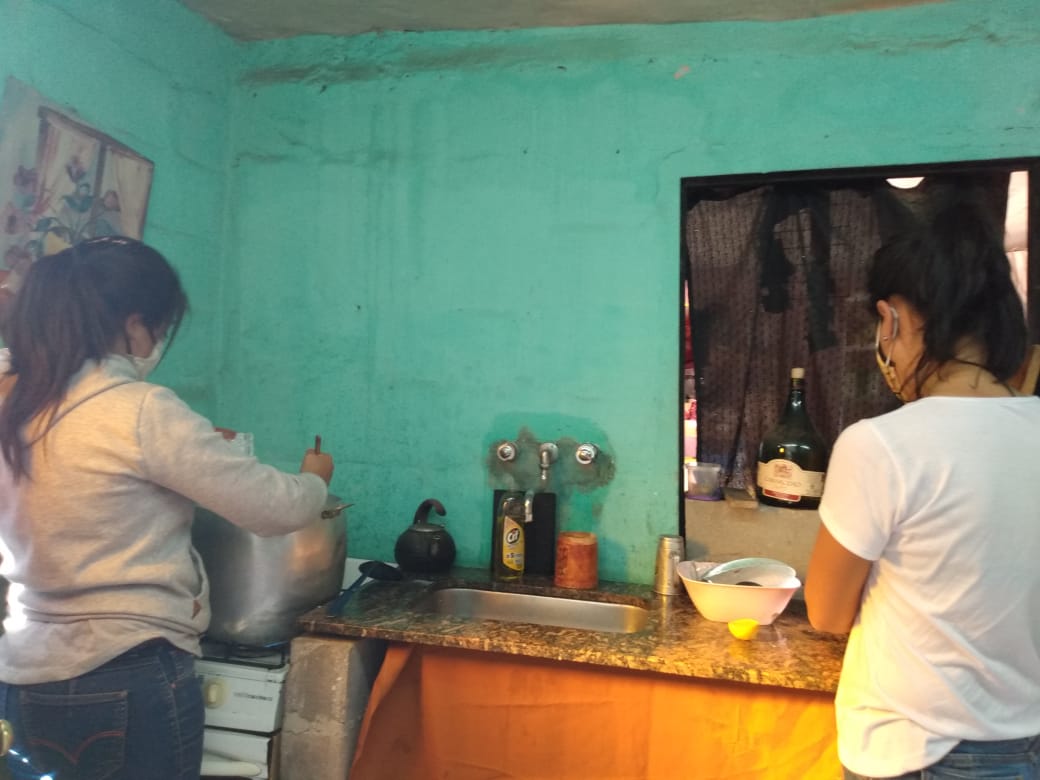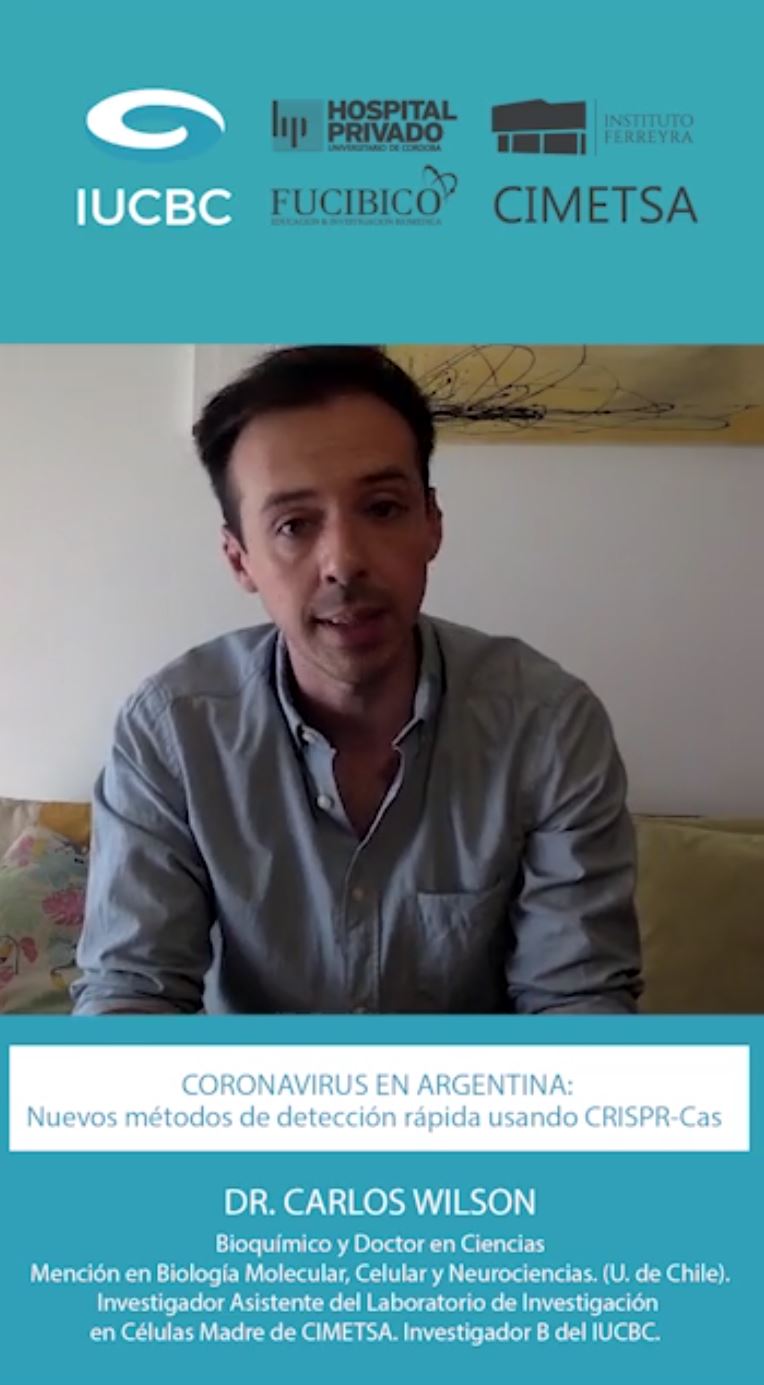LABORATORIO DE INVESTIGACIÓN EN CÉLULAS MADRES (LINCEMA)
HISTORIA:
El Laboratorio de Células Madre Inducidas (iPSCs) del IUCBC se crea a mediados del año 2015 como parte de un proyecto de Investigación Traslacional en asociación con el Instituto de Investigación Médica Mercedes y Martín Ferreyra (INIMEC-CONICET-UNC), la Fundación Instituto Leloir (FIL), el Hospital General de Agudos “Eva Perón”, CONICET y la Universidad de Buenos Aires. Este proyecyto de investigación conjunto fue subsidiado por el Ministerio de Ciencia y Técnica denyro del marco de la convocatoria FONARSEC 2015 para el desarrollo de Proyectos Biotecnológicos de Investigación Traslacional (PBIT 2015). Uno de los objetivos centrales del proyecto fue la puesta en funcionamiento de 2 laboratorios gemelos (uno en el INIMEC y otro en el IUCBC) para el cultivo de iPSCs de individuos normales y con enfermedad de Alzheimer genética (e.g. mutaciones en Presenilinas, PS1 y PS2). Estas células se generan por reprogramación de fibroblastos obtenidos de biposias de piel de acuerdo al procedimiento descripto por S. Yamanka en 2007. La reprogramación se realiza en PLACEMA (Plataforma de Células Madre) que dirije el Dr. F. Pitossi, investigador de CONICET en FIL. Las céluas reprogramadas son diferenciadas en neuronas corticales en los laboratorios del INIMEC e IUCBC. Esta tarea es realizada por las Dras. Laura Gastaldi (IUCBC) y Mónica Remedi (INIMEC-CONICET) siendo supervisada y coordinada por los Dres. Alfredo Cáceres (INIMEC, IUCBC) y Alfredo Lorenzo (INIMEC, IUCBC).
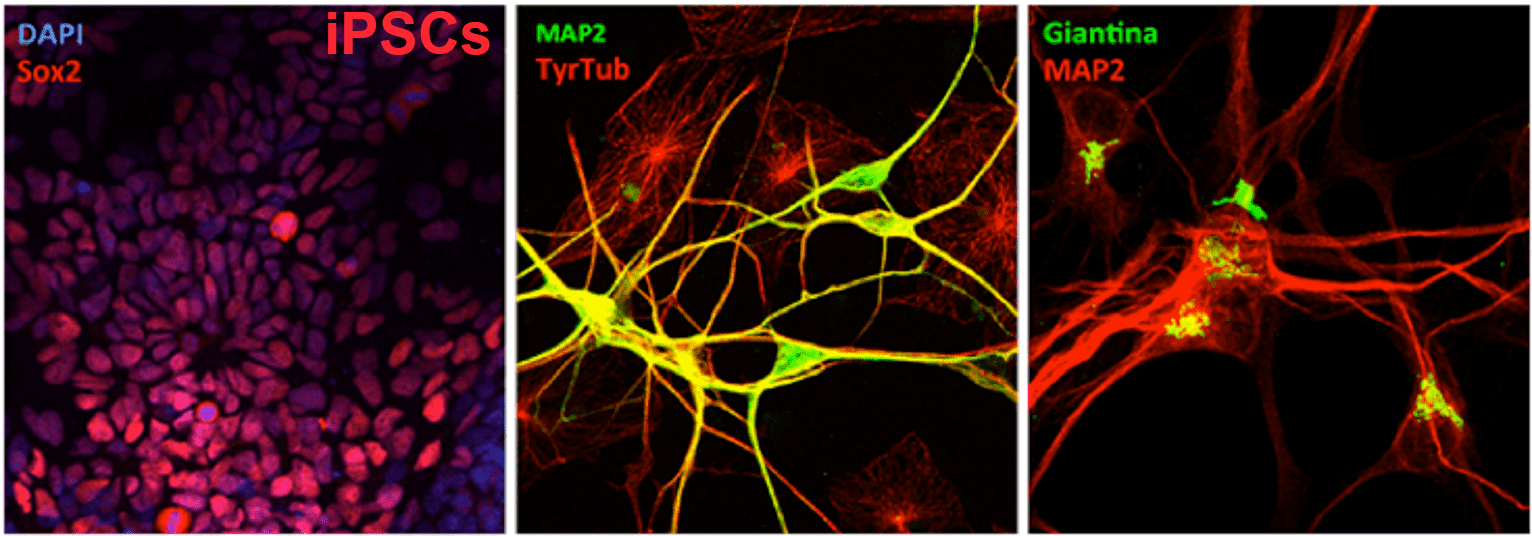
OBJETIVOS:
Los objetivos centrales de la tarea de investigación a realizar con iPSCs son:
- Caracterizar la morfodinámica del establecimiento de polaridad neuronal en iPSCs obtenidas de individuos normales y con mutaciones de PS1 y PS2
- Caracterizar la organización del citoesqueleto, la actividad de vías de señalización (e..g. RhoGTPasas), la biogénesis de organelas de la vía secretoria y el tráfico de membrana en iPSCs obtenidas de individuos normales y con mutaciones de PS1 y PS2.
- Generary caracterizar el desarrollo de organoides (mini-cerebros) a partir de iPSCs obtenidas de individuos normales y con mutaciones de PS1 y PS2.
Para llevar a cabo esta tarea se utilizan/rán técnicas bioquímicas y de biología celular/molecular, incluyendo el uso de procedimientos avanzados de microscopía (microscopía multidimensional) y nanoscopía (STED, STORM, etc.).
History
The Induced Stem Cell Laboratory (iPSCs) at the IUCBC was created in 2015 as part of a Translational Research project between Instituto de Investigación Médica Mercedes y Martín Ferreyra (INIMEC-CONICET-UNC), Fundación Instituto Leloir (FIL), Hospital General de Agudos “Eva Perón”, CONICET and Universidad de Buenos Aires. This research team project was funded by the Ministery of Science and Technology through the FONARSEC 2015 that promotes the development of Biotechnological Projects on Translational Research (PBIT 2015). One of the objectives of this project was the establishment of twin laboratories (one at the INIMEC and another at the IUCBC) to culture iPSCs from healthy patients as well as from patients suffering from the genetic Alzheimer’s (e.g. patients with mutations in Presenilins, PS1 and PS2). These cells are made by reprogramming fibroblasts from skin biopsies following a procedure described by S. Yamanka in 2007. The reprogramming procedure is performed at PLACEMA (Plataforma de Células Madre) lead by Dr. F. Pitossi, Investigator from CONICET at FIL. The reprogrammed cells are differentiated in cortical neurons at the INIMEC and IUCBC laboratories by Dr. Laura Gastaldi (IUCBC) and Dr. Monica Remedi (INIMIEC-CONICET) supervised and coordinated by Dr. Alfredo Caceres and Dr. Alfredo Lorenzo (INIMEC-IUCBC).
Goals
The main goals of the research on iPSCs are:
- Characterize the morphodynamics of the establishment of neuronal polarity on iPSCs obtained from healthy individuals as well as from individuals that have mutations on PS1 and PS2.
- Characterize the organization of the cytoskeleton, the activity of the signaling pathways (e.g. RhoGTPasas), the biogenesis of secretory organelles and the membrane traffic on iPSCs obtained from healthy individuals as well as from individuals that have mutations on PS1 and PS2.
- To generate and characterize the development of organoids (mini-brains) from iPSCs obtained from healthy individuals as well as from individuals that have mutations on PS1 and PS2.
To perform this research, biochemical, molecular and cell biology techniques will be utilized including advanced microscopy procedures (multidimensional microscopy) and nanoscopy (STED, STORM, etc.).
PUBLICACIONES/PUBLICATIONS
- Conde, C., Cáceres, A. (2009) Microtubule dynamics in axons, dendrites and at the synapse. Nature Review Neuroscience 10: 319-332
- González-Billault, C., Muñoz-Llancao, P., Henriquez, D., Wojnacki, J., Conde, C., and Cáceres, A. (2012) The role of small GTPases in neuronal morphogenesis and polarization. Cytoskeleton Special Issue “Emerging concepts on neuronal cytoskeleton”. (Hoboken) 69: 464-485. DOI: 10.1002/cm.21034. ISSN: 1949-3592.
- Cáceres, A., Bing, Y. and Dotti, C. G. (2012) Neuronal Polarity: Demarcation, growth, committment. In “Membranes and organelles” Current Opinion Cell Biology 24: 547-553.
- Li, A., Ye, C., Chuang J-Z., Cáceres, A., and Sung, C-H. (2013) IGF-1 activates a cilium-localized non-canonical Gβγ signaling pathway that regulates cell cycle progression. Developmental Cell 26: 358-368 (Cover).
- Quassollo, G., Wojnacki, J., Gastaldi, L., Salas, D., Bisbal, M., Couve, A., Marzolo, M., Conde, C., and Cáceres, A. (2015) A RhoA signaling pathway regulates Golgi outpost formation. Current Biology 25: 971-982.
- Sosa, L., Cáceres, A., Oksdat, M., Dupraz, S., Lorenzo, A., Quiroga, S (2017) The physiological role of the Amyloid Precursor Protein (APP) as an adhesion molecule in the developing nervous system. Journal of Neurochemistry. 143: 11-29 (Highlight in J Neurochemistry: doi: 10.1111/jnc.14115
MIEMBROS DEL LABORATORIO/LABORATORY MEMBERS
Dr. Alfredo Cáceres
Investigador Superior CONICET (INIMEC-CONICET-UNC)
Vice-Rector IUCBC
Dr. Alfredo Lorenzo
Investigador Independiente CONICET (INIMEC-CONICET-UNC)
Secretario Investigación IUCBC
Dra. Laura Gastaldi
Profesional Técnico IUCBC
Dra Mónica Remedi
Profesional Principal CONICET (INIMEC-CONICET-UNC)
Dr. Carlos Wilson
Becario Post-doctoral CONICET (INIMEC-CONICET-UNC)


